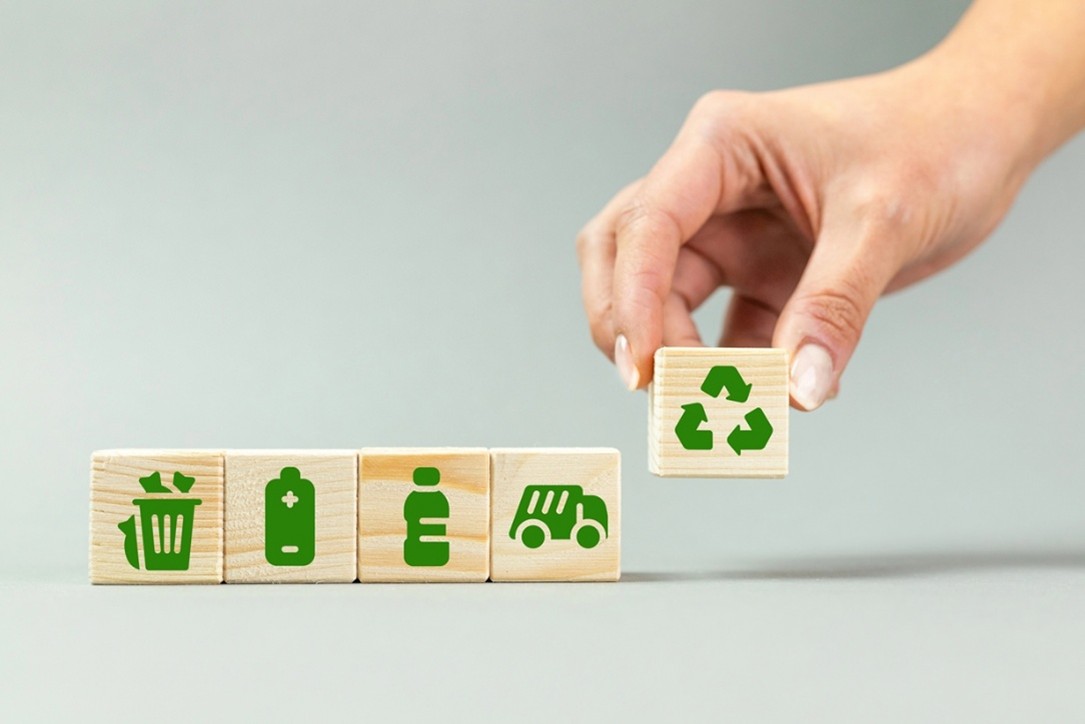
by Fern Shaw | Jan 19, 2026 | water boiler, Water Boilers, water cooler, Water Coolers
Every January, the third Monday rolls around with a gloomy reputation. Dubbed Blue Monday, it was once claimed to be the most depressing day of the year – a rather sad mix of dark mornings, cold weather and festive cheer well and truly packed away. No wonder so many of us wake up humming “I don’t like Mondays” (thanks, Boomtown Rats).
But what if we flipped the script?
From Blue to Brew
In recent years, Blue Monday has been reimagined as Brew Monday – a much warmer, kinder idea. Instead of dwelling on the blues, it encourages us to pause, make a cup of tea, coffee (or indeed, any hot water drink you like) and check in with the people we care about. A quick phone call, a message, or even a virtual cuppa can make a real difference. Sometimes, it’s the smallest gestures that lift the heaviest moods.
The Comfort of a Cuppa
There’s something deeply reassuring about a hot drink. The ritual of boiling water, choosing a mug and taking that first sip feels grounding – especially on a chilly January day. It’s a reminder to slow down, breathe and be present. And let’s be honest, many of life’s problems feel at least a little more manageable with a hot drink in hand and warming us up on the inside.
Keeping the Good Stuff Flowing
Of course, any good hot drink starts with hot water. If you’re the sort of person who finds comfort in frequent cuppas – at home or at work – having a reliable supply of piping hot water can make those moments even easier. A hot water boiler or hot & cold water cooler quietly does the job in the background, ready whenever you are. No fuss, no waiting, just instant warmth when you need it most.
Chase the Blues Away
So, whether you call it Blue Monday or Brew Monday, perhaps the answer is the same: connect, be kind to yourself and make good use of your hot water boiler. One cup, a quick chat with a workmate – in person or remotely – that’s how we turn a gloomy Monday into something a little brighter.

by Fern Shaw | Jan 13, 2026 | Water, water cooler, Water Coolers
Just like that, the festive lights are packed away, the last mince pie crumbs have mysteriously disappeared and we’re easing ourselves into another brand-new year. December often feels like a blur of celebrations, cosy moments and perhaps one too many helpings of everything – but we wouldn’t have it any other way. From catchups with friends and family to those quiet, in-between days where time seems to slow down, the festive season has a habit of leaving us both content and slightly disoriented.
We hope you had a joyful festive season, full of laughter, rest and maybe even a little mischief. And we have to ask … did anyone actually decorate their water cooler? We like to imagine a few tinsel-wrapped taps, a stray string of fairy lights and perhaps even the occasional Santa hat making a surprise appearance in the office or kitchen. After all, if you’re going to hydrate, you might as well do it in style.
As we step into brand spanking new year, filled with purpose, clarity, vision and healthy hydration habits, there’s a quiet sense of excitement in the air and, hopefully, a renewed commitment to looking after ourselves. January doesn’t have to be about drastic changes or unrealistic resolutions. Sometimes it’s simply about resetting, refocusing and choosing to do the small things a little better.
This year, how about we focus on creating small habits that make a big difference. Taking a moment to pause during a busy day. Remembering to refill your water glass before it’s empty. Choosing progress over perfection and feeling good about the direction we’re heading in, even if it’s one sip at a time. However you prefer to refresh your drinking water – hot, cold or ambient, remember, you’ll find the perfect solution among AquAid’s range of high-quality water dispensers.
There’s something refreshing about a new year – a chance to bring intention into our routines and clarity into our goals, while keeping things light-hearted and achievable. Healthy routines don’t have to be complicated; often, they start with the simplest choices.
Here’s to a year of clear minds, steady momentum and well-hydrated days ahead. We’re looking forward to every moment of it – and we’re glad you’re coming along for the journey.
Cheers to the year ahead!

by Fern Shaw | Dec 8, 2025 | water cooler, Water Coolers
As the year winds down and the evenings draw in, there’s something unmistakably magical about the UK festive season. Maybe it’s the scent of mince pies wafting from every bakery, or the way even the most ordinary high street suddenly looks like it’s auditioning for a Christmas card. Whatever it is, December brings a cheer that’s impossible to ignore.
When the Decorations Come Out
Nothing says festive spirit like the great unboxing of the decorations. Every household has that one tangled set of fairy lights that still, somehow, works after ten years. There’s also the annual debate: tasteful and coordinated, or full-on ‘Santa’s grotto exploded’? (Let’s be honest, both bring joy in their own way.)
And it’s not just homes getting into the swing of things. Offices across the UK are also donning their seasonal sparkle. If you’re feeling creative, you might even find yourself decorating your water cooler like it’s your very own Christmas tree. Just remember – while tinsel is delightful, it’s best to keep it well away from the dispense area unless you want your colleagues sipping festive fibre.
Festive Flair, the Inventive Way
One unexpected trend? Using water bottles to create a makeshift Christmas tree. Yes, really. Stack them just right and you’ll have a surprisingly impressive, eco-friendly centrepiece. A star on top is optional but highly recommended for maximum cheer.*
Small Moments, Big Comfort
Beyond décor, the season invites us to lean into little pleasures: that first mug of mulled wine at a market, the cosy jumpers that practically hug you back and the joyful excuse to eat ‘just one more’ Quality Street.
Whether you’re writing cards, planning gatherings, or simply enjoying the glow of the sparkling lights, the festive season nudges us to slow down, savour the moment and appreciate the warmth of connection.
Wrapping Up the Year
As we edge towards the end of the year, there’s comfort in looking back – and excitement in looking forward. The festive season reminds us that even in the chill of winter, there’s plenty of warmth to be found.
So, here’s to twinkling lights, good company, decorated water coolers and the joyful spark that only the UK festive season can bring. Cheers to a bright and merry end to the year!
*We’re not actually suggesting you use your office water bottles for this – they should be returned to your local AquAid depot for cleaning, reuse and eventually, recycling.

by Fern Shaw | Dec 1, 2025 | mains fed water cooler, water cooler, Water Coolers
When colder days settle in, it’s all too easy to gravitate toward heavier comfort foods and – without even noticing – let our water intake slip. But with modern heating, cosy offices and indoor workouts, winter no longer needs to be the season of dehydration. One simple way to stay on track is by enjoying water-rich winter fruits and few deliver quite as powerfully as blackberries.
Blackberries may be small, but they pack a hydrating punch with 88% water content, plus fibre, Vitamin C, Vitamin K and a healthy spread of minerals like Potassium, Magnesium and Zinc.
They’ve been part of the British landscape (and diet) for thousands of years, growing abundantly across hedgerows nationwide. Luckily, they’re also available year-round – an easy, tasty way to support hydration, even when the idea of drinking glass after glass feels less appealing in chilly weather.
Still, the simplest and most reliable path to good hydration is, of course, drinking water. Whether you’re in an office, school or remote workspace, a convenient water cooler makes staying hydrated effortless.
For busy spaces that prefer a plumbed-in option, mains fed water coolers provide a constant, unlimited supply.
If flexibility is more important, a bottled water cooler offers refreshing cool water without needing a fixed connection – just slot in the water cooler bottle and you’re set.
If your premises don’t yet have a hydration solution in place, it couldn’t be simpler to arrange one. With decades of expertise and a wide range of water coolers, water dispensers and tailored service options, you can easily contact AquAid to find the best fit for your space.
Stay warm, stay hydrated, enjoy your berries – you’re berry welcome.

by Fern Shaw | Nov 24, 2025 | bottle fed water coolers, mains fed water cooler, water cooler, Water Coolers
Understanding the impact of water coolers has become increasingly important as workplaces rethink their sustainability goals. With more businesses prioritising single-use plastic reduction and looking for an eco-friendly water dispenser, this guide compares bottled coolers with plumbed-in point-of-use (POU) systems to help teams choose wisely.
How Bottled Water Coolers Affect Sustainability
Traditional bottled water coolers are well known and widely used, but they naturally involve more environmental considerations. Large bottles require manufacturing, repeated transport and scheduled delivery, all contributing to the carbon footprint of water delivery.
That said, many suppliers – including AquAid – use robustly reusable bottles rather than disposable plastics, which significantly cuts waste. For sites without direct access to mains water, bottled systems can also be the only practical option.
Why POU Systems Offer an Eco-Friendly Alternative
POU or mains connected water coolers filter mains water at the point of use. This approach eliminates bottle production and delivery entirely, offering clear benefits for teams aiming at single-use plastic reduction or simply looking for an eco-friendlier water dispenser.
Because POU units stay installed in one position, they generally require less storage and transport logistics than bottled solutions. Over time, this can also make them more cost-effective – especially in busy offices where water consumption is consistently high.
Choosing the Right Solution for Your Workplace
When comparing the two systems, the decision often comes down to three key factors:
- Environmental priorities – POU systems typically win on sustainability, though bottled coolers remain suitable for locations without reliable mains access.
- Space and practicality – Consider where the unit will be positioned, including delivery access if using bottled options.
- Usage levels – Heavy-use environments usually benefit from the continuous supply POU systems provide.
AquAid supports clients in assessing both practical and eco-related needs to help them select the most efficient system for their workplace.
In a world where sustainability matters more every year, understanding the impact of water coolers helps businesses choose responsibly. Whether switching to a greener POU system or optimising bottled options, the right solution depends on your site’s layout, usage and environmental goals. To explore the best setup for your team, you can contact AquAid for tailored advice.

by Fern Shaw | Nov 19, 2025 | Africa Trust, aquaid, Water, water cooler, Water Coolers
In the UK, it’s easy to take toilets and clean water for granted. Most of us rarely stop to think about what life would look like without the privacy, hygiene and safety that proper sanitation provides. But for billions of people around the world, a reliable toilet is far from guaranteed. That’s exactly why World Toilet Day continues to be so important.
This year’s theme, Sanitation for Peace, reminds us that safe sanitation is closely tied to stability, health and equality. When people don’t have access to hygienic facilities, the results can be devastating: increased disease, contaminated water sources and a loss of safety and dignity – particularly for women and children. Diarrhoea remains one of the leading causes of death for children under five in developing countries, largely due to poor sanitation and hygiene. And around 1 in 8 people worldwide still practise open defecation every day.
But progress doesn’t always require complex technology. Sometimes, the most effective solutions are simple, well-designed and community driven. One example is the Elephant Toilet, created by The Africa Trust, an AquAid founded charity working across sub-Saharan Africa. This eco-friendly VIP (Ventilated Improved Pit) latrine uses minimal water, is built with local materials and skills, and provides a safe, clean and long-lasting sanitation option for rural communities. The design was recognised with the St Andrews Prize for the Environment for its ingenuity and effectiveness.
What makes the Elephant Toilet especially powerful is the way communities are involved. The Africa Trust provides training and materials – such as cement for the slabs – so local people can build and maintain their own facilities. This creates ownership, resilience and long-term benefits long after the initial construction is complete.
World Toilet Day is a reminder that sanitation is a foundation for health, dignity and opportunity. By supporting practical solutions and investing in sustainable systems, we can help ensure that everyone, everywhere, has access to something as basic – and as vital – as a safe toilet.
These are just a few reasons why AquAid is proud to support The Africa Trust. To date, over 1000,000 Elephant Toilets have been built, benefitting more than two million people. Since the beginning, The Africa Trust, along with AquAid, have understood how essential good sanitation is – not just for health, but for creating safer, stronger and more resilient communities.






